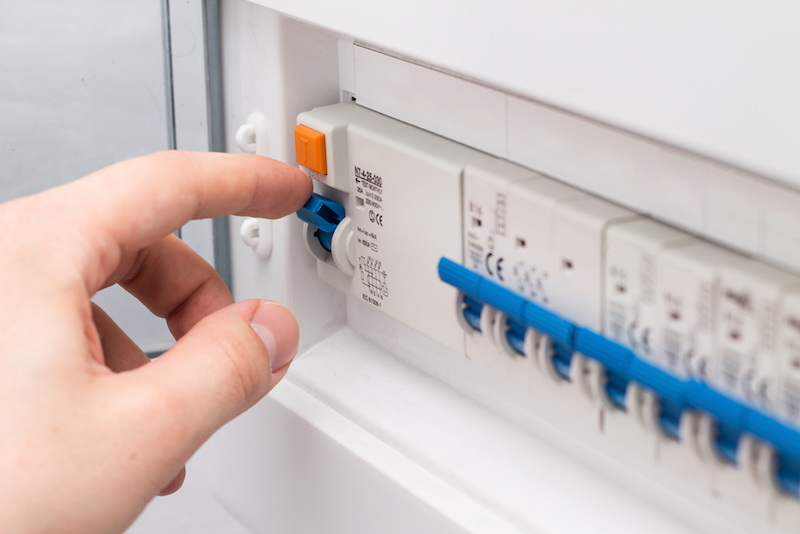What Does Your Home Fuse Box Actually Do?

A fuse box directs and controls power in your home, like an air traffic control center for your electricity. Most homes today have circuit breakers rather than fuses, but either way we are talking about the electrical control panel when we say fuse box.
Power comes in from “the grid” (or solar panels, or other source) and heads straight to the fuse box before branching off to different areas of your home. The main parts of this system are:
- The fuse box, or control panel — a metal box on a wall, typically in the garage, basement, or outside.
- Main switch — turns power on or off for the entire home.
- Fuses or circuit breakers — control individual circuits (e.g. the line of power running to the kitchen, the line running to the master bedroom, etc.).
- Residual current device (RCD) — a safety mechanism that shuts down power to prevent fire or injury in the event of a fault. Not present on most old fuse boxes.
How the Fuse Box Controls Your Home’s Electricity
Fuse boxes send appropriate amounts of power to each circuit in the house. They can also be used to turn off power to individual circuits. Most importantly, they protect you and your home from electrical fires and other problems.
Under normal conditions, all your fuses or breakers remain on at all times. When you or an electrician are doing electrical work, you can unscrew and remove a fuse or flip a breaker switch to prevent electric shock.
Fuses and breakers are sized in amps, a measure of the amount of electricity. Most circuits need a 15-amp fuse or breaker, while circuits that power larger appliances may need 20 amps or more.
If you have a malfunctioning appliance or if you plug in too many appliances in one room, a surge of electricity can exceed the maximum amps on the circuit. When that happens, the fuse blows and must be replaced. With breakers, the breaker switch trips itself off. In either case, you can correct the problem and then replace the fuse or flip the breaker.
Replacing a Fuse
Most fuses simply unscrew and pull out. Some types have metal clips. The most important thing to remember — always replace a fuse with the same kind. The new fuse must have the same threading type and the same amperage. Larger fuses can overheat the circuit and cause electrical wiring damage and potentially start a house fire.
Do I Need to Upgrade from a Fuse Box to a Circuit Breaker Panel?
Old fuse boxes in good condition can operate safely and effectively. However, any kind of mechanical part wears out eventually, and a fuse box is no exception. Also, people simply use more electricity than in the past, so you may need an upgrade to handle the load.
Converting from a fuse box to a circuit breaker panel should be done by a professional electrician — for your safety, and for the sake of your home’s electrical system.
Signs that you need to upgrade your control panel include frequently blown fuses, flickering lights, and the inability to power all your appliances in the locations you want.